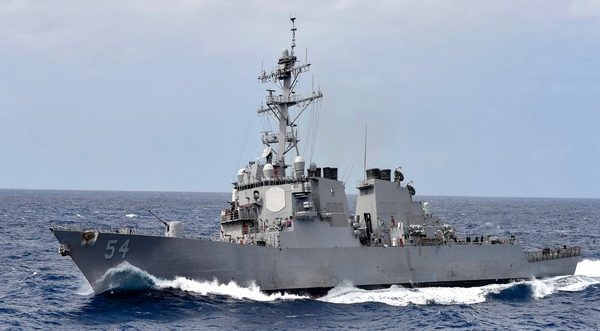New Delhi, Jan 27: An oil tanker, the Marlin Luanda, operated by Trafigura and flying the Marshall Islands flag, is ablaze in the Gulf of Aden, according to its operator, after the Houthi rebels claimed to have struck it with an anti-ship ballistic missile.
The incident marks the latest in a series of attacks on commercial shipping by the Iran-backed Houthis in the Red Sea region. The group asserts that it targets vessels in support of Palestinians in Gaza amid the ongoing conflict between Israel and Hamas.
US Central Command reported no injuries and stated that a naval ship responded to the tanker’s distress signal. The US and UK, along with support from other nations, have initiated air strikes on Houthi positions and targets in response to the attacks on commercial shipping.
In a statement, a Houthi spokesperson alleged that the Marlin Luanda was a British ship and was targeted in retaliation for “American-British aggression against our country.” The UK government condemned the attacks as “completely unacceptable,” emphasizing the right to respond appropriately.
The UK Maritime Trade Operations (UKMTO) reported the incident 60 nautical miles southeast of Aden, urging vessels to exercise caution and report any suspicious activity.
Subsequently, US Central Command disclosed that its forces had conducted a strike against a Houthi anti-ship missile prepared for launch into the Red Sea, destroying it in self-defence.
The Houthis have been responsible for numerous attacks on commercial vessels in the Red Sea since November, impacting one of the world’s busiest shipping lanes.
The war risk insurance premium for cargo ships has surged in the wake of escalating tensions in the Red Sea, with numerous insurance companies now hesitant to provide coverage for cargo transiting the region.
Over the past few weeks, the war risk premium has climbed up presenting a significant impact on shipping operations. Even a one per cent increase in the insurance premium means a lot for individual ships. A value of $200 million ship cost means an additional cost of $2 million. Should the situation in the Red Sea continue to deteriorate, there is a looming possibility of further rate increases in the near future.
The United Nations Conference on Trade and Development (UNCTAD) warned that the escalating attacks on shipping in the Red Sea by Houthi rebels are exacerbating the challenges faced by global trade and supply chains.
The already strained conditions, attributed to the war in Ukraine and climate change-related issues in the Panama Canal, are now further complicated by geopolitical tensions arising from the Houthi attacks.
According to Jan Hoffmann, Chief of Trade Logistics at UNCTAD, the assaults not only contribute to heightened geopolitical tensions but also result in increased costs and a rise in greenhouse gas emissions.
Speaking from Geneva to journalists at the UN Headquarters in New York via video link, Hoffmann emphasized the critical role of maritime transport in global trade, noting that disruptions underscore the sector’s vulnerability to geopolitics, tensions, and climate changes.
Houthi rebels, also known as Ansar Allah, control significant parts of Yemen, including the Red Sea coast. Since November, their intensified attacks on commercial ships have. In response, the United States, United Kingdom, and other nations have launched airstrikes against the group at sea and on land, escalating tensions in the region.
Due to the increased risk of attacks, ships are now avoiding the route and opting for a longer passage around the southern tip of Africa. Container ship transits have plummeted by 67 per cent compared to a year ago, with the most significant impact on liquefied natural gas (LNG) carriers, which have completely halted since January 16, according to UNCTAD.
These challenges compound the disruptions already caused by the war in Ukraine and abnormally low water levels in the Panama Canal due to climate change impacts. Low water levels have led to a 36 per cent decrease in ship transits compared to a year ago, with a nearly 62 per cent drop over two years. The impacts have been profound, contributing to a surge in average container spot rates.
Shipping costs have more than doubled since early December 2023, for Europe tripling. Hoffmann warned of the cumulative impacts, including rising costs, potential inflation, global delays and disruptions, and an exacerbation of climate change-related challenges.







